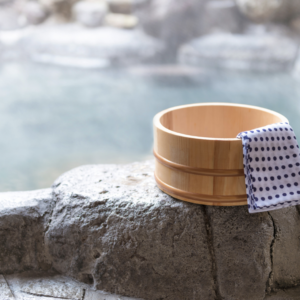Business Etiquette in Japan: Tips for Professional Travelers
Table of Contents
Japan’s business culture is deeply rooted in respect, tradition, and meticulous attention to detail. Whether you’re visiting for a short business trip or establishing long-term professional relationships, understanding Japanese business etiquette is crucial for building trust and achieving success. Here’s your guide to navigating Japan’s professional landscape with confidence.
Preparing for Business in Japan

1. Learn About Japanese Work Culture
Japanese companies emphasize hierarchy, teamwork, and long-term relationships. Decisions are often made collaboratively, and deference to seniority is a key aspect. Understanding these values will help you approach business dealings respectfully and effectively. Familiarize yourself with the concept of “Honne” (true feelings) and “Tatemae” (public facade), as these often shape how people communicate in professional settings.
2. Dress Appropriately
Conservative and professional attire is the standard. For men, this typically means a dark suit, white shirt, and tie. Women should opt for modest business suits or dresses with minimal accessories. Avoid flashy colors or bold patterns, as they may be seen as unprofessional.
3. Be Punctual
Time is highly respected in Japan. Arriving late to a meeting is considered disrespectful and can damage your credibility. Aim to arrive at least 5-10 minutes early to demonstrate your reliability and commitment. If delays are unavoidable, notify your counterpart as soon as possible with a sincere apology.
4. Bring Ample Business Cards
Business cards, or meishi, are essential in Japan. Ensure you have a sufficient supply, and consider printing cards with Japanese text on one side and English on the other. The quality of your cards reflects your professionalism, so invest in high-quality materials.
5. Research Your Counterpart
Take the time to learn about the company and individuals you’re meeting. This preparation shows respect and helps you tailor your approach. Understanding their industry, role, and recent achievements can make conversations more meaningful.
Business Card Etiquette

1. Present Your Card Respectfully
Use both hands to present your business card, with the Japanese text facing the recipient. Bow slightly as you hand it over. This gesture conveys humility and respect.
2. Receive Cards With Care
Accept business cards with both hands, take a moment to examine the card, and acknowledge the person’s name and title. Avoid putting the card away immediately or writing on it during the meeting, as this can be seen as disrespectful.
3. Store Cards Properly
Use a professional cardholder to store received cards. Placing them in your wallet or pocket can appear careless and insulting. Keep them accessible during the meeting as a reference.
Conducting Meetings in Japan

1. Start With Formal Introductions
Meetings typically begin with a round of introductions. Each person states their name, title, and role. Follow the lead of your host and use honorifics like “-san” when addressing others. This demonstrates cultural sensitivity and respect.
2. Respect Seating Arrangements
Seating is often based on hierarchy, with the most senior person sitting at the head of the table. Wait to be directed to your seat to avoid any missteps. If in doubt, defer to your host’s instructions.
3. Practice Active Listening
Listen attentively and avoid interrupting. Nodding occasionally shows that you are engaged and understanding the discussion. Taking notes can also demonstrate your attentiveness.
4. Speak Modestly and Clearly
Avoid using overly assertive or aggressive language. Instead, focus on building consensus and showing humility. Japanese communication often relies on subtlety and indirectness, so pay attention to non-verbal cues.
5. End With Gratitude
Conclude meetings by expressing appreciation for the opportunity. Phrases like “Arigatou gozaimashita” (ありがとうございました) show respect and leave a positive impression.
Gift-Giving in Business
1. Choose Appropriate Gifts
Small, thoughtful gifts such as local specialties or high-quality items are appreciated. Avoid overly expensive or personal gifts, as these may create a sense of obligation.
2. Present Gifts With Both Hands
Like business cards, gifts should be offered with both hands and a slight bow. Express that the gift is a token of your appreciation rather than a bribe or formality.
3. Avoid Surprises
In Japan, it’s common to notify recipients about a gift in advance. This practice ensures the gesture is understood and appreciated. Unexpected gifts can sometimes create discomfort.
4. Wrap Gifts Neatly
Presentation matters in Japan. Use elegant wrapping paper or gift bags, as an unwrapped gift may be considered impolite. Avoid using colors like white or black, which are associated with mourning.
5. Receive Gifts Graciously
When receiving a gift, thank the giver and set the gift aside without opening it immediately. Opening gifts in front of the giver is generally discouraged unless prompted.
Dining Etiquette in Business Settings

1. Wait for the Host’s Lead
Let the host initiate seating arrangements and the start of the meal. This gesture respects their role as the organizer and avoids any unintentional breaches of etiquette.
2. Offer a Toast
Before drinking, wait for the host to propose a toast, usually with the phrase “Kanpai” (乾杯). Raise your glass slightly and take a sip before setting it down. Avoid starting before the toast.
3. Follow Table Manners
Use chopsticks correctly, avoid pointing with them, and don’t stick them upright in rice. Try to sample all dishes offered as a sign of respect for the host’s hospitality. Leaving food uneaten may be perceived as wasteful.
4. Refrain From Discussing Business Immediately
Business discussions are often reserved for after the meal or drinks. Use the initial part of the gathering to build rapport and establish a comfortable atmosphere.
5. Offer to Split the Bill
While the host often pays for business meals, it’s polite to offer to contribute. If your offer is declined, express gratitude for their generosity and hospitality.
Building Long-Term Relationships
1. Prioritize Trust and Patience
Building trust takes time in Japan. Avoid rushing decisions and focus on developing a strong foundation for collaboration. Consistency and reliability are key factors in earning trust.
2. Maintain Regular Communication
Follow up promptly after meetings or agreements. Sending a thank-you email or note reinforces your professionalism and dedication. Regular updates help maintain strong relationships.
3. Adapt to Group Decision-Making
Japanese business culture values consensus. Be prepared for group discussions and avoid pressuring for immediate decisions. Respecting the group’s input fosters a cooperative environment.
4. Respect Cultural Nuances
Be mindful of cultural subtleties, such as non-verbal cues and indirect communication. Understanding these nuances helps foster mutual respect and avoids misunderstandings.
5. Participate in Social Gatherings
Events like after-work drinks or company outings are vital for strengthening relationships. Engage respectfully and use these opportunities to connect on a personal level. These informal settings often lead to deeper trust.
FAQs About Business Etiquette in Japan
1. Is English Widely Used in Business Settings?
While English is common in international business, learning basic Japanese phrases shows effort and respect. Professional interpreters can also bridge language gaps and enhance communication.
2. How Should I Address My Japanese Colleagues?
Use last names with the honorific “-san” (e.g., Tanaka-san). Avoid using first names unless invited to do so, as this maintains professionalism and respect.
3. What Should I Do if I Make a Mistake?
Apologize sincerely using phrases like “Sumimasen” (すみません) or “Gomen nasai” (ごめんなさい). Acknowledge the error and outline steps to resolve it.
4. Are There Topics to Avoid in Conversations?
Avoid sensitive subjects like politics, religion, and personal matters unless brought up by your counterpart. Stick to neutral and professional topics to ensure smooth communication.
5. Can I Refuse a Social Invitation?
Declining a social invitation is acceptable but should be done politely. Express gratitude and provide a clear reason for your inability to attend. Avoid abrupt or dismissive refusals.
Looking to strengthen your professional connections in Japan? Contact Firefly Japan for personalized guidance and resources for navigating Japanese business culture.
Final Thoughts
Mastering business etiquette in Japan is key to building successful and lasting professional relationships. By showing respect for cultural norms, preparing thoughtfully, and demonstrating humility, you can navigate Japan’s business landscape with confidence and poise.
Whether you’re attending meetings, exchanging gifts, or dining with colleagues, embracing these practices will leave a positive and lasting impression.
Looking for a tour agency to help with your planning?
Contact Firefly Japan to book a private luxury tour in Tokyo & Kanto


